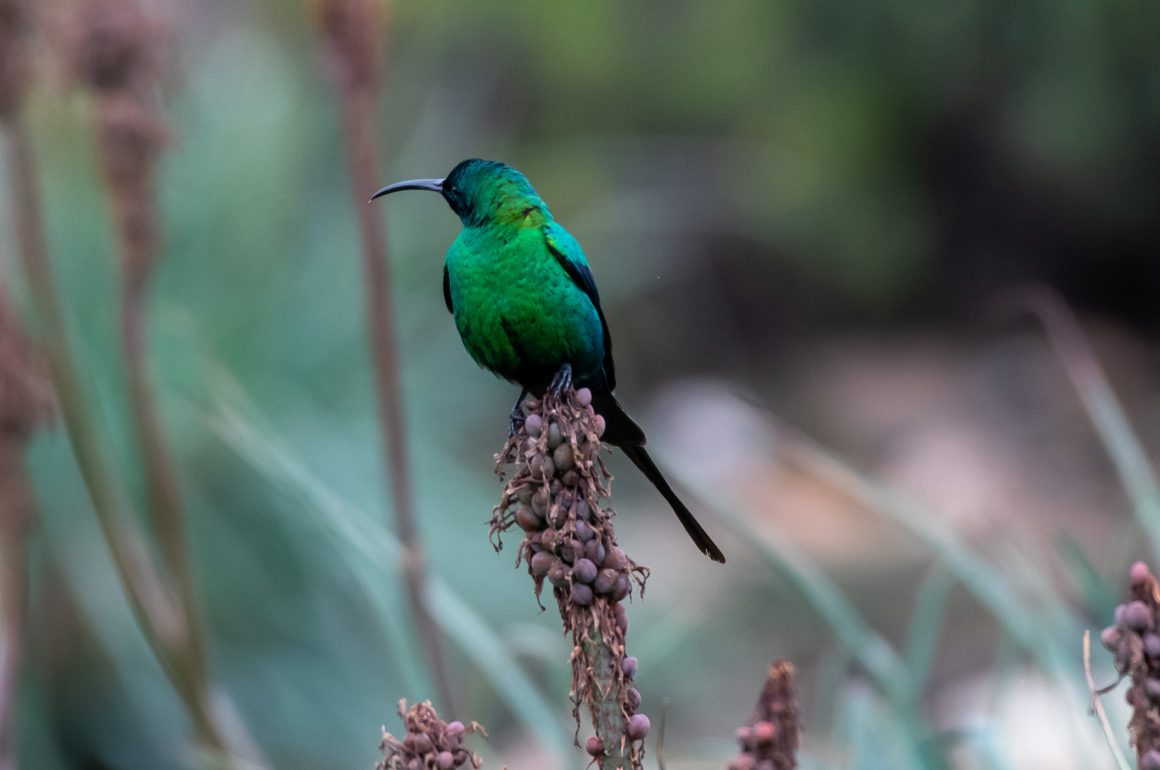
Several years ago, I was exposed to the lyrical, poetic prose of a Grand Trunk advertisement. This hammock dealer deftly used imagery to sell the feeling of adventure and exploration without ever blatantly coming out to say it. Although they were not successful in selling me a hammock (at least, not yet), one particular phrase has stuck with me. This phrase evokes a goal and describes the “true traveler,” a person I strive to one day be. The ad is filled with creatively descriptive phrases, and I argue that there is at least one phrase that everyone can relate to. The particular phrase that speaks to my soul is, “stamps in weathered passports.”
I have read that many Americans, particularly millennials, feel that travel is our identity. We are travelers, it is who many of us are and the drive for adventure and exploration rules our lives. When I am not traveling, I am busy daydreaming about future destinations and if I do not have a trip on the horizon, I feel directionless and anxious. And if you take this phrase, “stamps in weathered passports,” my interpretation is that the experiences from travel are the “stamps” as sights, sounds, tastes, smells, textures, on your “passport,” or soul.
What drove me to this revelation was crossing the border of the tiny, enclaved nation of Lesotho via the Sani Pass, a ridiculously treacherous road. After a harrowing journey traversing boulders, crossing streams, and alongside plunging valleys in a tricked-out 4×4 Toyota Land Cruiser, we reached the border check station at the top where I forfeited my precious passport, the thing that holds my records of places visited and sights seen to the bored border agent. She slowly scribbled down my name, passport number, birthdate, and nationality into a giant ledger before giving it a stamp and passing it back.
It took me a moment to grab my passport and safely restore it to its place in my carefully organized travel pack because I could not help but stare at my name carelessly written into this large book that was halfway around the world from my home. I was tempted to take a picture, but quickly realized that is not something normal people do and that I did not want to be detained. However, I cannot stop thinking about my name written in that book. In my brief life of travel, I have been to many places and had never once until then seen a handwritten border crossing station.
All this time, I have selfishly been thinking about the impact travel has on me, the stamps in my weathered passport as it were, but rarely consider the mark my passport has and all the clues and pieces I leave behind. What little marks have I been making around the world? With guides I hire, restaurants and hotels I visit, people I pass on the trail? Many make an indelible mark on me, and I wonder if I do the same.
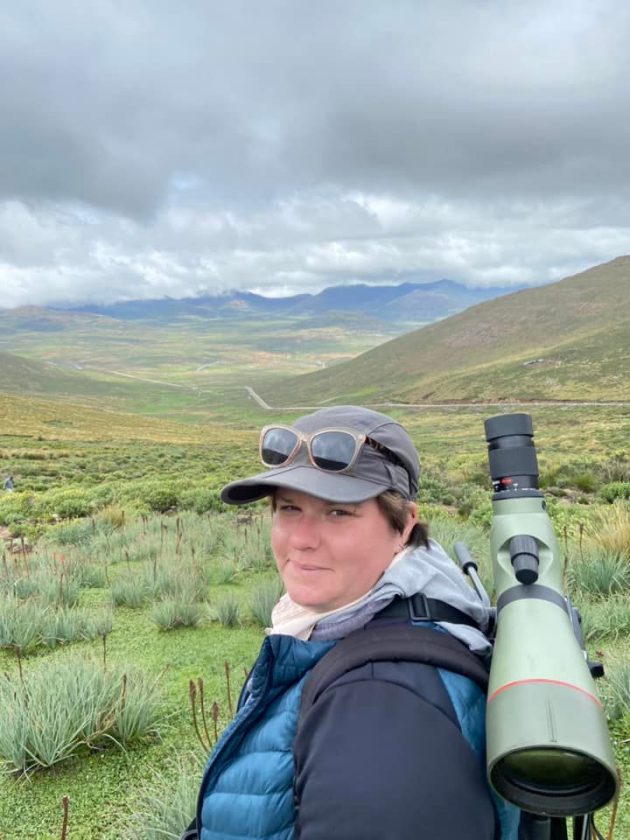
Traveling into Lesotho from the Sani Pass is an experience more than just the journey to the top. From the border check station, you can turn to the right and go to the “Highest Bar in Africa” or continue into the unknown. We traveled maybe ten miles on the only road before turning back around. The views were filled with scrubby, low vegetation, dramatic mountains, sheep herds, and sheep herders.
Birding was tougher. There are no trees throughout the landscape, so it is either looking up for birds passing overhead or stomping through the scrub to flush hiding birds. With the lack of trees, it was a surprise that a woodpecker is still taking up space. In one stretch of rocky outcropping, a group of Ground Woodpeckers foraged along boulders searching for ants and as their name suggests, they forage on the ground in sparsely vegetated country. We saw dozens of small, brown birds hopping in and out of the vegetation like Sickle-winged Chat, Mountain Pipit, various lark species, a Southern Bald Ibis that only a mother could love, and fewer raptors like Bearded Vultures and Cape Griffon.
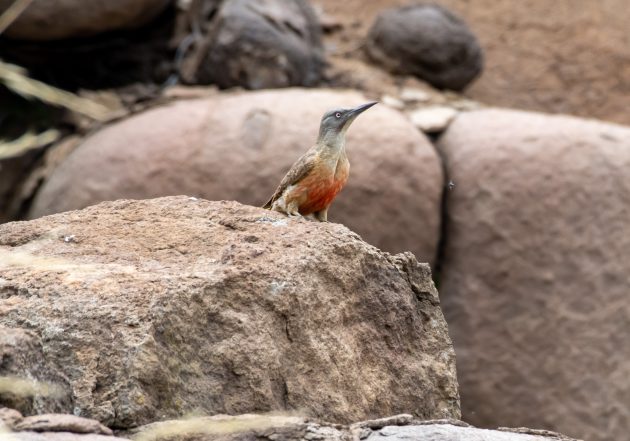
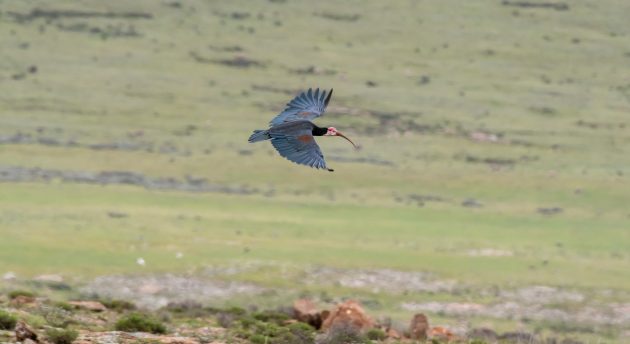
The low birding levels allowed me to observe and consider those who live there, whose lives are so different from my own. I have seen documentaries of yak herders in Mongolia, but I never thought I would see something similar with my own eyes. The herders are nomadic groups that move sheep from place to place, staying in brick structures that dot the landscape. Our local guide, Stuart, informed us that the small flags flying in front of some structures advertised what they sold: white for dairy, yellow for homemade wine, and red for meat. Products that the herders bartered for. While driving along and looking for flags, I noticed my lifer hyrax, a large, angry-looking groundhog-like mammal.
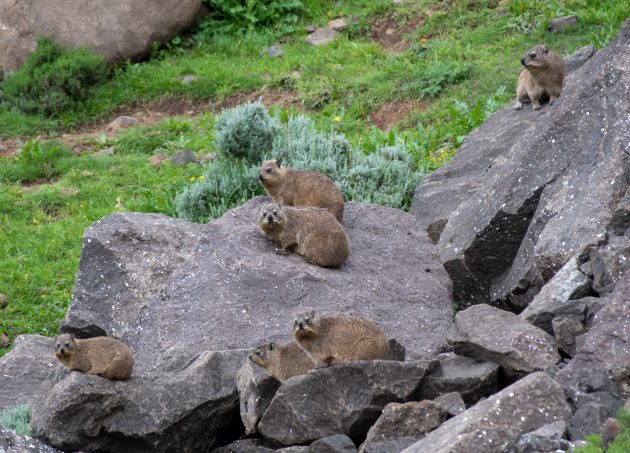
Stuart provided a wonderful field lunch alongside a stream with samosas, a field-standard hard-boiled egg, and other snacks. A Black-headed Canary was calling from the bushes, a Black Stork was overhead, and a smattering of other species popped up to see what we were doing. We did not make too many other stops other than to head back to the “Highest Bar in Africa” for a celebratory beer and I was able to add to my foreign currency collection with a $20 Lesotho Loti. When we arrived at the bar, the fog had blown in and we could not see the bottom of the valley. A Drakensberg Rockjumper made a brief appearance and a Malachite Sunbird perched nicely showing off its brilliance. A few hours later we made it safely back to our lodging with little from Lesotho besides a stamped passport and plenty of photos.
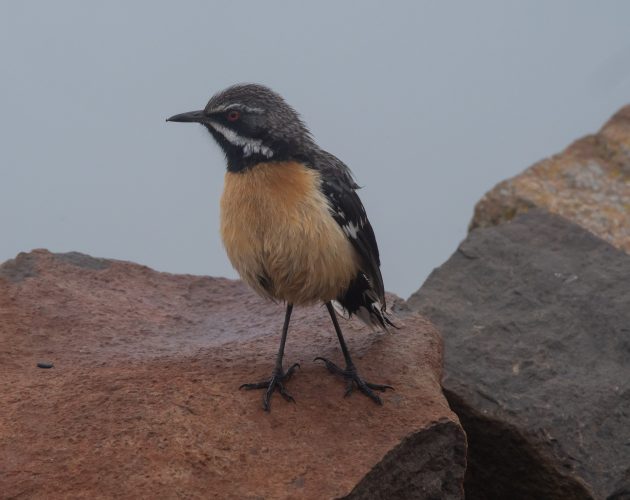
So whether you take the phrase literally: a passport weathered by time and passage between hands checked over and over again by border stations, hotels, train stations, airports, filled with stamps of coming and going between some of the many, many destinations around the world, or figuratively: your soul and life impacted by the sights, sounds, smells, tastes, and textures you experience as you travel about the world… we must consider the impact we are having whether it big or small because travel is a privilege.
I left Lesotho with five different stamps from coming and going in my passport, filling up almost a whole page, which seemed a little excessive for spending only the morning and exploring very little of the small nation, however, it seems appropriate for the impact Lesotho has had on my soul.
Hear more about this trip on this podcast: Hannah and Erik Go Birding KwaZulu-Natal, South Africa and Lesotho.

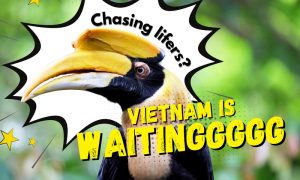


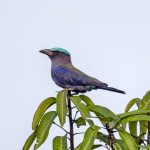
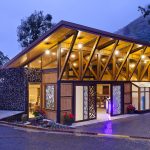
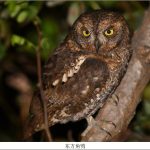
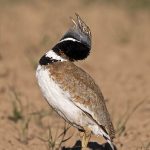
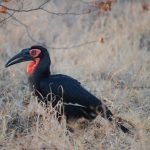
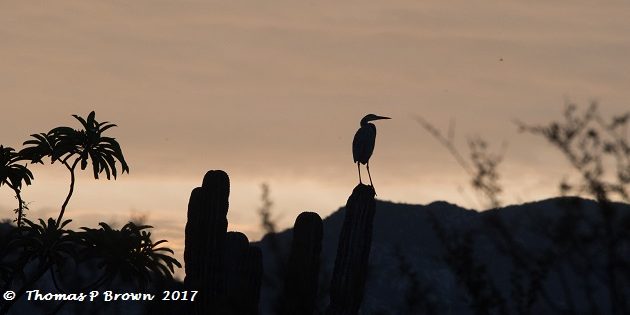
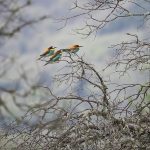
Unromantical engineers are closing the surface of the Sani pass road (or have finished already) so the trip up is now just as boring as driving anywhere else, albeit with great views.
For a post on the same area – with more bird photos but fewer interesting thoughts – see my previous post: https://www.10000birds.com/birding-the-drakensberg-south-africa.htm
Good to see a southern bald ibis making an appearance on 10000 Birds, as well as northern bald ibises in the same week.